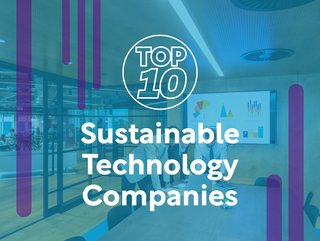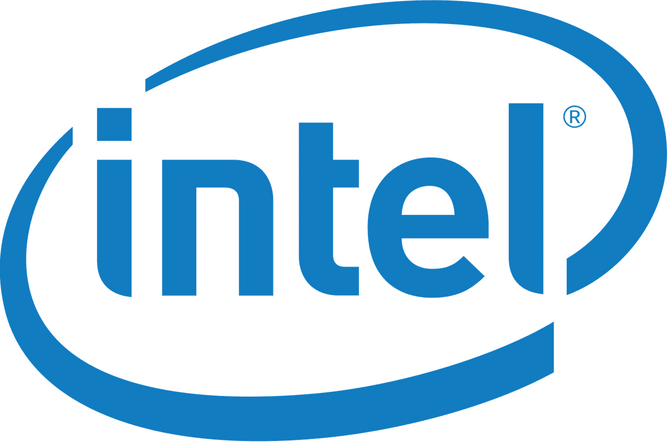
While the tech sector has traditionally been viewed as a driving force for innovation and advancement, it has also historically been a significant contributor to greenhouse gas emissions. However, as we transition into a world more conscious of its ecological footprint, several technology companies are emerging as drivers in green innovation, setting themselves ambitious targets to help create a more sustainable world.
In this article, Technology Magazine highlights the top 10 big tech companies driving green initiatives.

10. HP
HP has set a goal to become carbon neutral by 2040 and to use 100% renewable energy to power its global operations by 2025.
The company is also investing in sustainability research and development to create new technologies that can help it reach its target of zero waste across all operations by 2025 and conserve resources.

9. Dell Technologies
Dell Technologies has set a goal to reach net zero greenhouse gas emissions across scopes 1, 2 and 3 by 2050, and is investing in sustainability research and development to create new technologies that can help reduce waste and conserve resources.
In a mission to reduce the 53.4mn tons of e-waste produced every year, by 2030, for every product a customer buys, the company says it will reuse or recycle an equivalent product.

8. Meta
Having committed to reaching net zero emissions across its value chain in 2030, Meta is continuing to reduce its Scope 1 and Scope 2 emissions in line with climate science by increasing the efficiency of its operations and maintaining 100% renewable energy.
By 2030, Meta will support projects that remove carbon equivalent to the emissions we are not able to reduce by then. In 2021, the company supported carbon removal projects in Kenya and Mexico that represent more than 200,000 tons of carbon sequestration via forests and soil.

7. NVIDIA
American multinational technology company NVIDIA Corporation is committed to acquiring or producing sufficient renewable energy to offset 100% of its worldwide electricity consumption.
The company's H100 GPUs, built on the cutting-edge Hopper architecture, boast an impressive 26x energy efficiency advantage over CPUs based on inferencing benchmarks. Demonstrating its dedication to environmental sustainability, NVIDIA claims to power the most efficient supercomputer listed on the Green500 ranking for November 2022.

6. IBM
With an aim to have net zero greenhouse gas emissions by 2030, IBM is creating better pathways to conserve natural resources, reduce pollution, and minimise climate-related risks.
The company is also investing in sustainability research and development to create new technologies that can help reduce waste and conserve resources, with plans to divert 90% of nonhazardous waste from landfill and incineration by 2025.

5. Intel
Intel Corporation has committed to achieve net-zero greenhouse gas emissions across its global operations by 2040, while the company also has goals to use 100% renewable energy and have zero waste to landfill.
In 2021, Intel demonstrated its progress in energy conservation, saving around 486 million kilowatt hours of electricity. The company also announced it had successfully reduced its total GHG emissions by 2% from the previous year.

4. Apple
Apple has made sustainability a core part of its business, with initiatives aimed at reducing its carbon footprint, using renewable energy, and increasing use of recycled materials. Approximately 20% of the materials used Apple’s products are made from recycled content, and by 2030, the company aims to be carbon neutral.
Since 2008, the company says it has reduced the average energy use of its products by 70%, and in 2021 doubled the amount of recycled tungsten, rare earth elements and cobalt in its products.

3. Amazon
The world’s largest corporate purchaser of renewable energy, Amazon has set ambitious sustainability goals, including reaching net-zero carbon emissions by 2040 and using 100% renewable energy by 2025 - five years ahead of the company’s original target of 2030.
The company is also investing in sustainable technologies and practices to reduce waste and conserve resources. AWS enables customers to build sustainability solutions ranging from carbon tracking to energy conservation to waste reduction, using AWS services to ingest, analyse, and manage sustainability data.

2. Microsoft
By 2030, Microsoft aims to achieve carbon negativity, removing more historical emissions than it has generated since its establishment in 1975.
The company, which also pledges to be zero waste and water positive by 2030, is also investing in sustainability research and development to create new technologies that can help reduce waste and conserve resources.
In 2022, it launched Microsoft Cloud for Sustainability, a comprehensive suite of enterprise-grade sustainability management tools. Microsoft has also helped to advance a set of global sustainability initiatives that aim to benefit every person and organisation on the planet. These include accelerating the availability of new climate technologies through its Climate Innovation Fund, strengthening climate policy agenda, helping to develop a more reliable and interoperable carbon accounting system, advocating for skilling programs to expand the green workforce, and working to enable a just transition for the vulnerable populations of the global south.

1. Alphabet
With a goal to operate all of its data centres and office campuses on 24/7 carbon-free energy by 2030, Google is heavily investing in sustainability research and development to create new technologies that can help reduce waste and conserve resources from machine learning to help cool its data centres to smart thermostats that conserve home energy.
The company started purchasing renewable energy in 2010, and in 2017 became the first major company to match 100% of its annual electricity use with renewable energy purchases.
Google’s parent company, Alphabet, has dedicated the entire net proceeds from its US$5.75bn Sustainability Bond to support environmentally and socially-responsible projects.
Google's sustainability strategy revolves around three key pillars, including accelerating the transition to carbon-free energy and a circular economy; empowering individuals and communities through technology; and creating positive impacts for the people and places where Google operates.
- Microsoft in Japan: $2.9bn Investment to Boost AI & CloudCloud & Cybersecurity
- Tech Leaders Launch AI Consortium to Upskill WorkforcesAI & Machine Learning
- Oracle Database@Azure Expansion: Committing to the CloudCloud Computing
- How Microsoft Supports Michigan Medicine’s ModernisationCloud Computing







